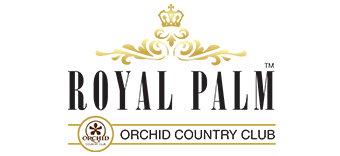In the rich culinary landscape of Singapore, halal buffet restaurants stand out as symbols of cultural diversity and exceptional dining experiences. Beyond serving delightful meals, these establishments act as bridges between local traditions and global tastes. This article explores the history and cultural significance of halal buffet restaurants in Singapore, tracing their origins, evolution, and the special role they play in the city’s vibrant dining scene.
The Origins of Halal Dining: A Culinary Tapestry
To understand halal buffet restaurants, we must start with the concept of halal. Halal, meaning “permissible” in Arabic, defines dietary guidelines in Islam, where food is prepared following specific religious practices. As a result, halal dining has become a vital part of Singapore’s culinary identity, shaped by the city’s substantial Muslim community.
Halal Cuisine in Singapore: Religion and Culinary Artistry
Halal cuisine in Singapore reflects the nation’s multicultural nature, driven by the presence of Malay, Indian, and other Muslim communities. Halal eateries became essential as they offered inclusive dining options, making it easier for people of all backgrounds to come together and dine.
The Emergence of Buffet Dining: A Feast for All
Buffet-style dining gained popularity in Singapore as a way to cater to diverse palates and preferences, allowing diners to sample various dishes. It provided an ideal format for the city’s food lovers, combining the appeal of variety with the ability to indulge in a wide range of flavors at once.
The Halal Buffet Renaissance: A New Era Dawns
Halal buffet restaurants have evolved significantly, moving beyond traditional dishes to embrace global flavors and culinary innovations. This shift marked the beginning of a halal buffet renaissance, where diners could experience a fusion of tastes while enjoying the assurance of halal practices.
Cultural Fusion: A Melting Pot of Tastes
Singapore’s halal buffet restaurants are remarkable for their fusion of cultural influences. They incorporate elements from Malay, Indonesian, Indian, and Middle Eastern cuisines, offering a melting pot of flavors that reflects Singapore’s diverse community.
Malay Heritage: Preserving Traditions
The influence of Malay heritage is especially prominent in halal buffets, with classic dishes like Nasi Lemak, Rendang, and Satay reminding diners of traditional flavors and celebrating regional culinary practices.
International Delicacies: A Global Palate
Many halal buffets go beyond local fare, including international cuisines such as Japanese sushi, Italian pasta, and Mediterranean salads. This fusion approach ensures a broad range of choices for all diners, satisfying varied tastes.
Catering to Dietary Preferences: Inclusivity is Key
Inclusivity is a core value of halal buffet restaurants. They cater to various dietary needs, offering vegetarian, vegan, and gluten-free options, ensuring that everyone has a place at the table.
Cultural Celebrations: Feasting Together
Halal buffet restaurants have become popular venues for celebrating festivals such as Hari Raya, Ramadan, and Deepavali, promoting a sense of community. These celebrations bring families and friends together, embodying the spirit of unity and shared traditions.
Modern Culinary Artistry: Beyond Tradition
Many halal buffets are pushing culinary boundaries by incorporating modern cooking techniques, unique ingredients, and artistic presentations. This blend of traditional and contemporary practices appeals to diners looking for innovative flavors and aesthetics.
Sustainability and Halal Dining: Eco-Conscious Choices
Some halal buffet restaurants in Singapore are adopting sustainable practices, such as sourcing ingredients responsibly and reducing waste. By embracing eco-conscious choices, these restaurants are helping to create a greener dining environment for future generations.
The Role of Halal Buffets Today: A Culinary Bridge
Today, halal buffet restaurants continue to serve as platforms for cultural exchange. They introduce diners to a variety of flavors, bridging local traditions and global tastes. By promoting inclusivity and respecting diverse backgrounds, they play a key role in enhancing Singapore’s culinary diversity.
Conclusion:
Halal buffet restaurants in Singapore are more than just places to enjoy a meal; they are cultural ambassadors that celebrate the city’s diversity, inclusivity, and innovation. Each visit to a halal buffet is an invitation to explore a rich world of flavors, blending heritage with modernity. These culinary havens honor Singapore’s unique multiculturalism, enriching the city’s dining tapestry and embodying the harmonious coexistence of tradition and progress in Singapore’s dynamic food scene.
